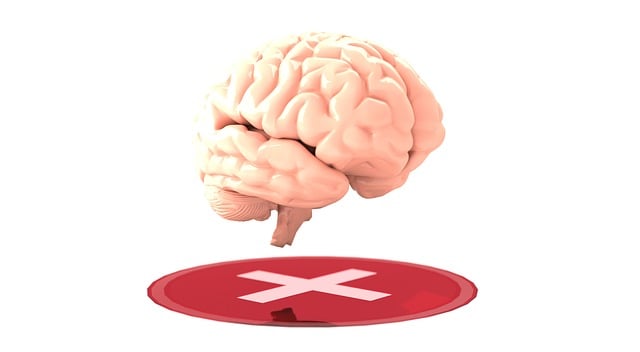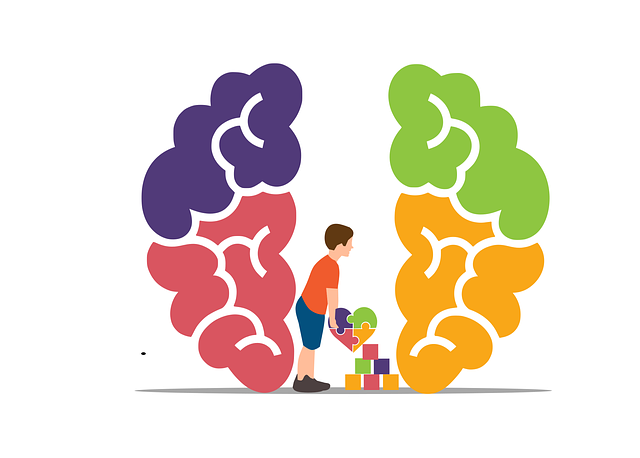Broomfield Acceptance and Commitment Therapy (ACT) is a powerful, evidence-based approach to mental wellness that encourages acceptance, mindfulness, and action aligned with personal values. Program evaluation plays a crucial role in refining ACT programs by assessing not just traditional outcomes but also the integration of self-care routines and their impact on well-being. A multi-faceted evaluation strategy combining quantitative (surveys, tests) and qualitative (interviews, focus groups) methods is essential to gauge ACT program effectiveness, identify areas for improvement, and ensure alignment with evidence-based practices. This holistic approach contributes to continuous program refinement, enhances mental health awareness, and ultimately improves the well-being of participants.
“Uncovering the effectiveness of mental wellness programs is paramount in enhancing well-being. This article explores a robust evaluation framework for Broomfield Acceptance and Commitment Therapy (ACT), a evidence-based approach revolutionizing mental health care. We define program evaluation, highlighting its significance in measuring the impact of ACT initiatives. Key methods, including both quantitative and qualitative techniques, are unveiled to assess ACT programs’ success. Moreover, we emphasize continuous improvement through leveraging evaluation findings for refining these transformative therapies.”
- Understanding Broomfield Acceptance and Commitment Therapy (ACT) for Mental Wellness
- Defining Program Evaluation in the Context of Mental Health Initiatives
- Key Methods for Assessing ACT Programs' Impact
- Quantitative and Qualitative Assessment Techniques
- Continuous Improvement: Using Evaluation Findings to Enhance ACT Programs
Understanding Broomfield Acceptance and Commitment Therapy (ACT) for Mental Wellness

Broomfield Acceptance and Commitment Therapy (ACT) is a powerful approach to mental wellness that emphasizes acceptance, mindfulness, and committing to actions aligned with personal values. This therapeutic method encourages individuals to develop inner strength by embracing their experiences, rather than trying to avoid or suppress them. By fostering a non-judgmental mindset, ACT helps reduce the struggle against difficult thoughts and emotions, thereby minimizing symptoms of anxiety and depression.
The Broomfield ACT approach is particularly beneficial in various settings, including Stress Management Workshops Organization programs, Healthcare Provider Cultural Competency Training initiatives, and other community mental health efforts. Through these platforms, individuals can learn valuable coping skills to navigate life’s challenges. By combining acceptance and commitment, participants gain a deeper understanding of their values, fostering meaningful actions that contribute to improved mental wellness and overall quality of life.
Defining Program Evaluation in the Context of Mental Health Initiatives

Program evaluation is a vital process in mental health initiatives, providing a structured framework to assess and improve interventions designed to enhance well-being. In the context of Broomfield Acceptance and Commitment Therapy (ACT), for instance, evaluation methods go beyond measuring traditional therapeutic outcomes. They focus on understanding how individuals integrate self-care routine development for better mental health, leveraging mind over matter principles to foster inner strength development.
By employing various techniques such as surveys, interviews, and observation, evaluators can gather rich data on participant experiences. This includes gauging changes in attitudes towards coping mechanisms, levels of emotional regulation, and the overall impact on daily functioning. Such insights are crucial for refining ACT programs, ensuring they remain effective and aligned with the evolving needs of those seeking mental wellness support.
Key Methods for Assessing ACT Programs' Impact

The evaluation of mental wellness programs, particularly those based on Broomfield Acceptance and Commitment Therapy (ACT), requires a multifaceted approach to accurately gauge their impact. Key methods include qualitative and quantitative assessments, pre-post tests, and long-term follow-ups. Qualitative methods, such as participant interviews and focus groups, offer insights into individuals’ subjective experiences and changes in awareness and acceptance of thoughts and feelings. Quantitative tools, including surveys and standardized measures, provide measurable data on improvements in symptoms, functional abilities, and quality of life.
ACT programs’ effectiveness can also be assessed through mental health policy analysis and advocacy, ensuring alignment with evidence-based practices. Mental health education programs design plays a crucial role in integrating evaluation findings into future program iterations, fostering continuous improvement. By combining these methods, evaluators can obtain a comprehensive understanding of an ACT program’s impact on participants’ mental health awareness and overall well-being.
Quantitative and Qualitative Assessment Techniques

Evaluating mental wellness programs requires a blend of quantitative and qualitative assessment techniques to gain a comprehensive understanding of their impact. Quantitative methods involve statistical analysis of data collected through surveys, tests, and other measurable tools. This approach helps identify trends, correlations, and overall program effectiveness in terms of reducing symptoms, improving coping mechanisms, or enhancing overall well-being, as demonstrated by studies using Broomfield Acceptance and Commitment Therapy (ACT) techniques.
Qualitative assessments, on the other hand, delve into participants’ subjective experiences and perceptions. Methods such as interviews, focus groups, and open-ended surveys provide rich insights into individuals’ interpretations of the program’s benefits, challenges, and potential areas for improvement. Integrating both quantitative and qualitative data allows for a more nuanced evaluation, which is crucial in designing evidence-based Mental Health Education Programs, preventing burnout among practitioners, and developing impactful public awareness campaigns.
Continuous Improvement: Using Evaluation Findings to Enhance ACT Programs

The continuous improvement of mental wellness programs is paramount to ensuring their effectiveness and relevance in addressing evolving needs. Evaluation findings from Broomfield Acceptance and Commitment Therapy (ACT) programs serve as a powerful tool for enhancing treatment strategies. By regularly assessing patient outcomes, therapists can identify areas where improvements are needed, whether it’s refining cognitive techniques for better mood management or adapting the program to accommodate specific cultural considerations.
This iterative process encourages mental health professionals to go beyond mere symptom reduction and foster lasting behavioral changes. Incorporating risk assessment tools, as part of a comprehensive approach, helps in identifying individuals at higher risk and allows for proactive interventions. Moreover, sharing valuable insights from evaluation data through a Mental Wellness Podcast Series Production can educate both professionals and the public, fostering a culture of transparency and continuous learning within the field.
The integration of Broomfield Acceptance and Commitment Therapy (ACT) into mental wellness programs has shown promising results, as highlighted by rigorous evaluation methods. By combining quantitative data analysis with qualitative insights, we can comprehensively assess the impact of ACT initiatives. These evaluations not only measure individual outcomes but also contribute to the overall improvement of mental health services. Through continuous improvement cycles, utilizing evaluation findings allows for enhanced ACT program design and delivery, ultimately fostering better mental wellness outcomes for all participants.














